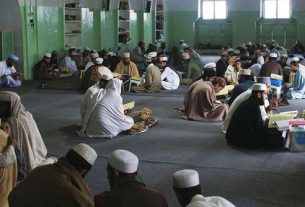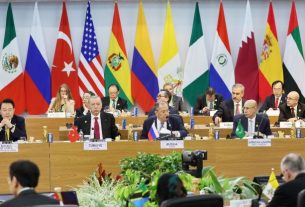India Water Foundation, an NGO with ECOSOC consultative status, has presented a report on the policies and programs in India related to the human right to water and sanitation, especially in the context of the climate emergency the world is grappling with, at the 54th session of the United Nations Human Rights Council (UNHCR) meetings.
Speaking at an event titled “Safeguarding the human right to water and sanitation in India amidst climate emergency” at UNHCR office in Geneva, India Water Foundation’s president Dr. Arvind Kumar cited the Right to Water under Article 21 of the Indian constitution, which guarantees the Right to Life. He mentioned that the water crisis has first-hand effects on women and girls.
In this context, he applauded India’s efforts towards this emergency. He said, “India has made commendable progress in the field of sanitation and water since the launch of the Swachh Bharat Mission (SBM) and the Jal Jeevan Mission (JJM) programs. Currently, 62% of households in rural India have tap water connections, and 40% rural households have declared themselves Open Defecation Free Plus.”
He further added that this leads to strengthening of public health systems, maintenance of cultural and ecosystem diversity, prevention of migration of ethnic communities, and sustainable sources of water leading to equity and equitable access.
Satya Tripathi, Secretary General of the Global Alliance for Sustainable Planet, talked about the horrendous effects of climate change on developing countries like India. He also mentioned OECD reports that highlight how countries like the USA are faring on the promise of climate finance.
He said that the USA is far behind in its promise to contribute $100 billion. Norway is topping the list with its contribution.
Tripathi stressed on localizing efforts and said, “We have to prioritize access to water and sanitation services in rural and marginalized communities. Engage local communities in the planning, implementation, and management of water and sanitation projects. Launch public awareness campaigns to educate citizens about water conservation, hygiene practices, and the importance of sanitation.”
On a similar note, SIWI’s Executive Director Karin Gardes said, “Climate change is a multiplier of inequalities, and that requires tailored solutions. These solutions should target specifically the most vulnerable people, focusing on conditions of accessibility, acceptability, and affordability of the WASH services. India has made significant progress in the water and sanitation sector, and it all boils down to improved water governance.”
Vishwaranjan Sinha, IUCN’s Programming officer of Water Wetlands, lauded Kolkata’s man-made wetland that saves money and generates employment. He also said, “Water governance capacity should be understood as the competence of a society to ensure the development of sustainable water resources and the implementation of effective water management by means of transparent, coherent, and cost-effective policy law and institutions.”
Moderator Shweta Tyagi, Chief functionary of the India Water Foundation, summed up the session by saying “The accelerated efforts in the water and sanitation sector in India are to be applauded. The way forward should be stressing on water infrastructure designed to resist and recover from catastrophic weather events, such as droughts and floods.
“Water-related data and information are critical to understand the social, economic, and environmental demands and complexity of water and sanitation challenges and to effectively target measures and funding” she added.





